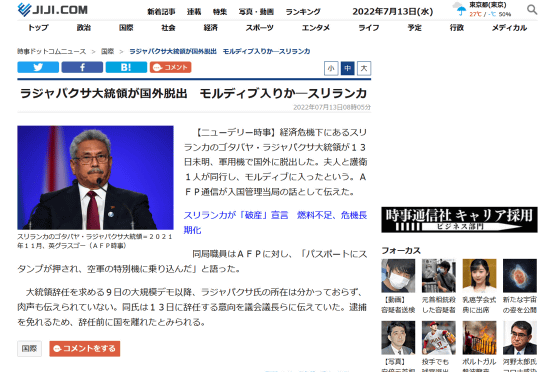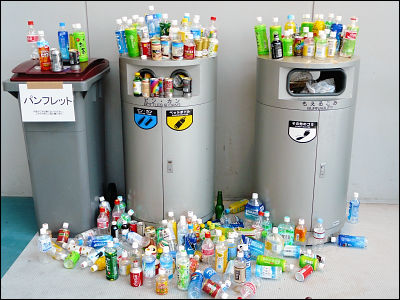Why did Sri Lanka's grand plan to 'make all domestic agriculture organic' fail?

In recent years, attention has been focused on
Sri Lanka's Organic Farming Experiment Went Catastrophically Wrong
https://foreignpolicy.com/2022/03/05/sri-lanka-organic-farming-crisis/
Since the 1960s, Sri Lanka has subsidized farmers who purchase synthetic fertilizers, which has more than doubled the yield of rice and other crops. Thanks to this, even in the event of a serious food shortage in the 1970s, it is possible to earn foreign currency by exporting high-yielding tea and rubber, and to maintain a stable food supply by importing food from other countries. It was done. Due to the increase in agricultural productivity, surplus labor was generated and urbanization progressed, but in 2020, the total amount of fertilizer import costs and subsidies reached 500 million dollars (about 55 billion yen at the rate at that time). Was there.
Meanwhile, in the 2019 presidential election, President Gotabaya Rajapaksa, who promised to shift all Sri Lankan agriculture to organic farming in 10 years, was elected. After taking office, President Rajapaksa has moved domestic agricultural experts and scientists who are negative about the transition to organic farming away from the agricultural section on the transition to organic farming. Instead, he appointed a member of the organic farming promotion group called ' Viyathmaga ' to the Minister of Agriculture and a series of committees.
A few months after President Rajapaksa took office, a pandemic of the new coronavirus infection (COVID-19) struck Sri Lanka's tourism industry. In 2019, tourism will account for about half of Sri Lanka's sources of foreign currency, and by early 2021, the Sri Lankan government's budget and foreign exchange reserves were in serious danger.
Therefore, President Rajapaksa has promoted a policy to shift all domestic agriculture to organic farming at once, and announced in April 2021 that 'chemical fertilizers and pesticides will be banned.' In addition to fulfilling the election promise, this also had the benefit of reducing spending by cutting fertilizer purchases and subsidies.

However, prior to this policy, about 2 million Sri Lankan farmers were not given a sufficient transition period and could not keep up with the production of organic fertilizers needed to replace chemical fertilizers. As a result, contrary to the claim that 'organic farming can produce yields comparable to traditional farming,' the yield of rice, the main food of Sri Lanka, decreased by 20% in the first 6 months, and the domestic price decreased by 50%. In addition to the sharp rise, it was decided to import rice worth 450 million dollars (about 62 billion yen).
In addition, the yields of major exports such as tea, rubber and coconut have also decreased significantly, so in November 2021 the use of chemical fertilizers was partially approved for these major exports, and in 2022. In February, we stopped the transition to organic farming for our major exports. The Sri Lankan government provided direct compensation of 200 million dollars (about 27 billion yen) to farmers and further subsidized 149 billion dollars (about 20 billion yen) to rice farmers who suffered losses, but farmers There are criticisms from the government that compensation is inadequate. It is estimated that the economic loss will reach 425 million dollars (about 58 billion yen) even if the production of tea is reduced.
The Foreign Policy said, 'Since the plan was announced, agronomists in Sri Lanka and around the world have warned that yields will drop significantly. The government has replaced imported chemical fertilizers with other organic fertilizers. There was no way to produce enough fertilizer domestically to make up for the shortfall, although he claimed to increase production in the country. ' The policy has deeply hurt the people of Sri Lanka, 'said the expected reduction in foreign currency spending and subsidies, which outweighed the cost of food imports and compensation for lost farmers due to reduced yields. I pointed out that.

Foreign Policy points out that 'agriculture is based on fairly simple thermodynamic laws' as to why the transition to organic farming in Sri Lanka was unsuccessful. Agricultural output is greatly influenced by agricultural inputs such as pesticides, nutrients, land, labor and irrigation, and human beings harvest crops by expanding the land they cultivate for a long time and adding fertilizers made from livestock excrement. I have increased the amount. Still, only 200 years ago, more than 90% of the world's population had to engage in agriculture to produce enough food to feed people.
However, in the 19th century, the expansion of world trade led to the mining of fossilized
But what really changed agriculture was the development of the Haber-Bosch process, which produces ammonia, and the start of fertilizer production in the early 20th century. Chemical fertilizers have rebuilt agriculture around the world and significantly increased yields, dramatically changing people's lives. At the time of writing, about 8 billion people live on Earth, of which 4 billion's food depends on increased yields from fertilizers, the Foreign Policy points out.
Organic farming that does not use such fertilizers is carried out by farmers in poor countries who cannot afford to buy fertilizers, or by the wealthiest farmers in developed countries in the world. Organic foods have become a health and environmental protection option for people in developed countries, but remain in a niche market that accounts for less than 1% of global agricultural production.
The Foreign Policy states that while organic farming can maintain 'not disastrously low yields' by using large amounts of organic fertilizers, it works well 'in a large, industrialized agricultural system.' Pointed out that it is a body. It is energetically acceptable for some farmers to move to organic farming, but when moving to organic farming nationwide, as in Sri Lanka, the production of organic fertilizers that make it possible is a bottleneck. 'It is certain that a small island nation does not have enough land to produce so much organic fertilizer. To produce so much livestock manure requires more land to raise livestock, which is accompanied by it. There is also environmental damage, 'said Foreign Policy.

Although the EU has long promised a transition to sustainable agriculture and has policies banning the overuse of pesticides and fertilizers, it still relies heavily on fertilizers overall. Bhutan also had a plan to ' completely transition to organic farming by 2020, ' but many farmers continue to rely on fertilizers at the time of writing.
As you can see from the above example, it is not trivial to shift the whole country's agriculture to organic farming. The Foreign Policy points out that technical solutions are needed, such as proper use of fertilizers, soil improvement using bioengineering, and the introduction of genetically modified crops that require less pesticides and herbicides. 'Rather than removing old tools that have proven important to life from farmers, we give them new tools so that countries like Sri Lanka do not put farmers in poverty or destroy their economies. , Can mitigate the environmental impact of agriculture. '
In Sri Lanka, Prime Minister Ranil Wickremesinghe declared the country 'bankruptcy' in July 2022 due to the decline in the tourism industry due to the pandemic and the effects of price increases and currency depreciation due to Russia's invasion of Ukraine. In the midst of a large-scale protest, President Rajapaksa announced his intention to resign on July 9, and reportedly fled the Maldives on a military aircraft before dawn on July 13.
President Rajapaksa escapes abroad to Maldives-Sri Lanka: current affairs dot com
https://www.jiji.com/jc/article?k=2022071300147

Related Posts:







